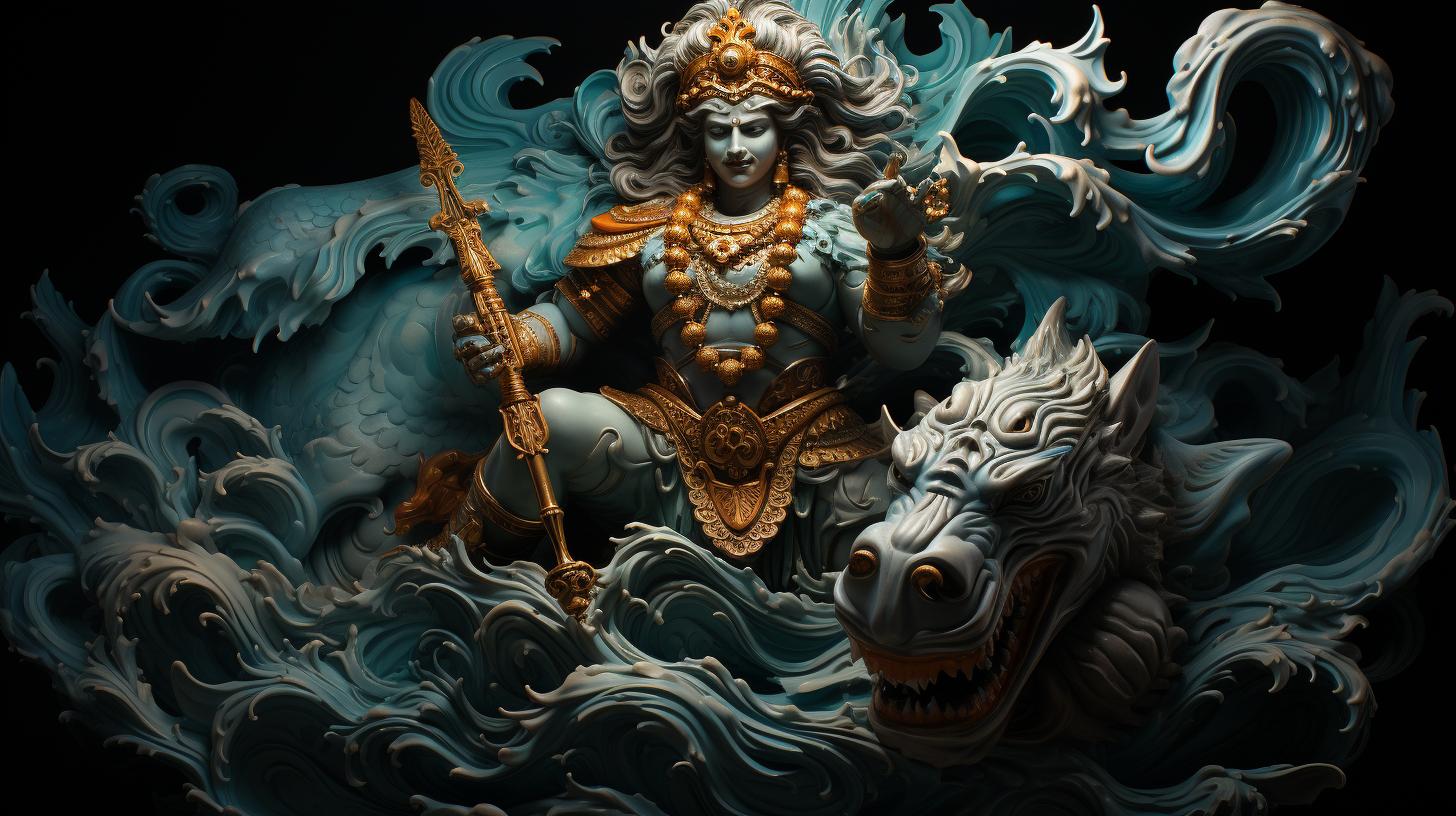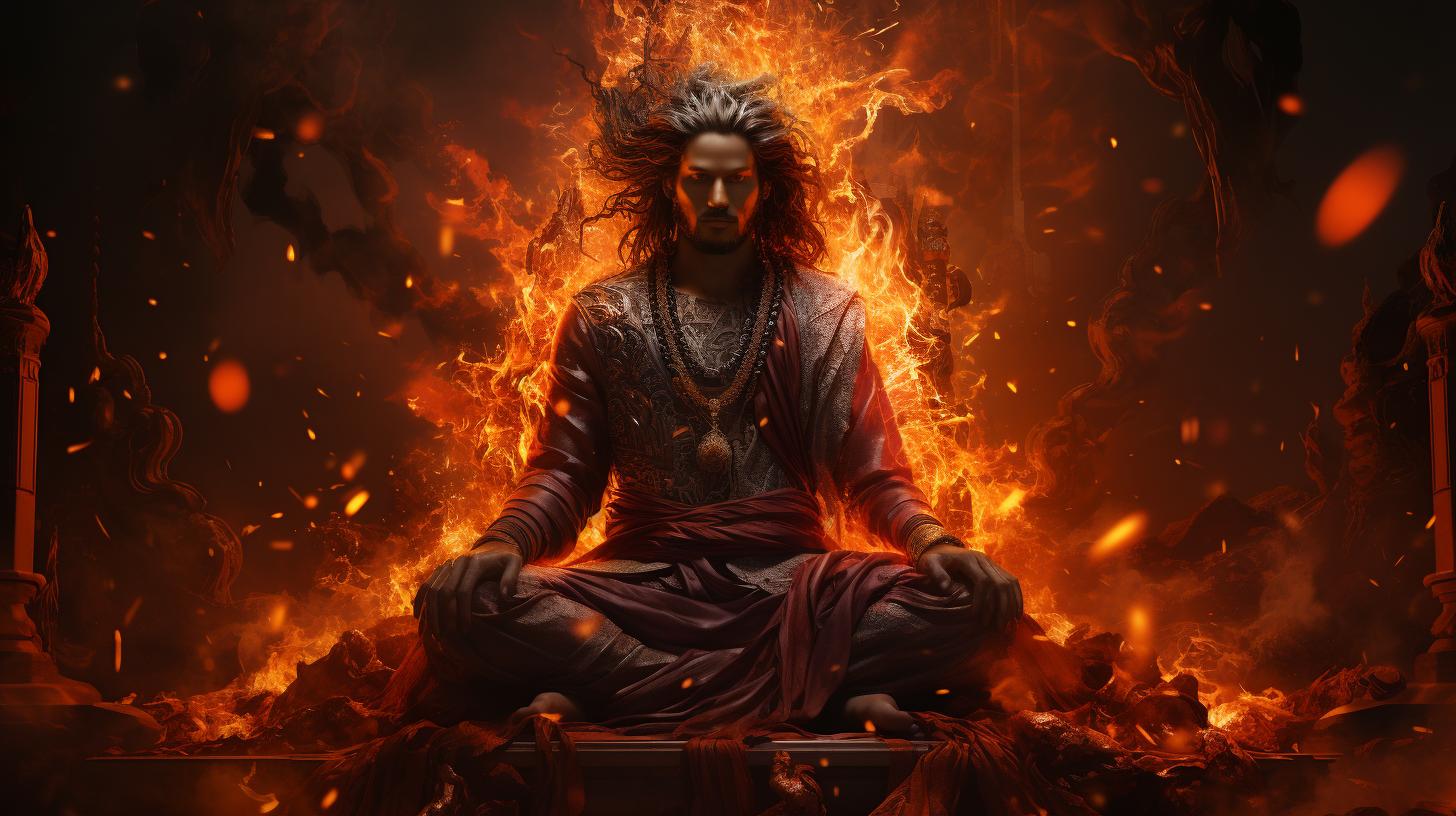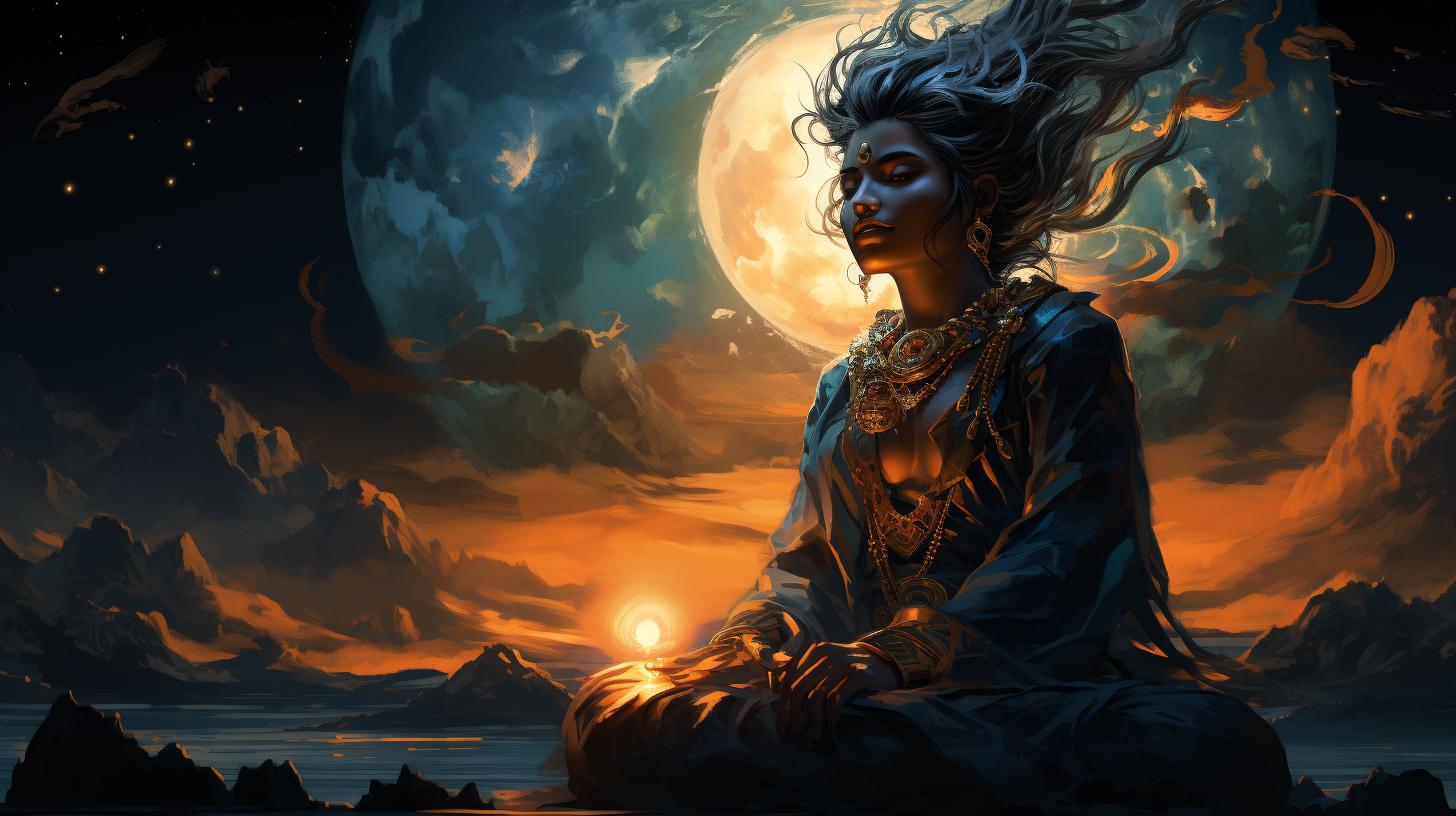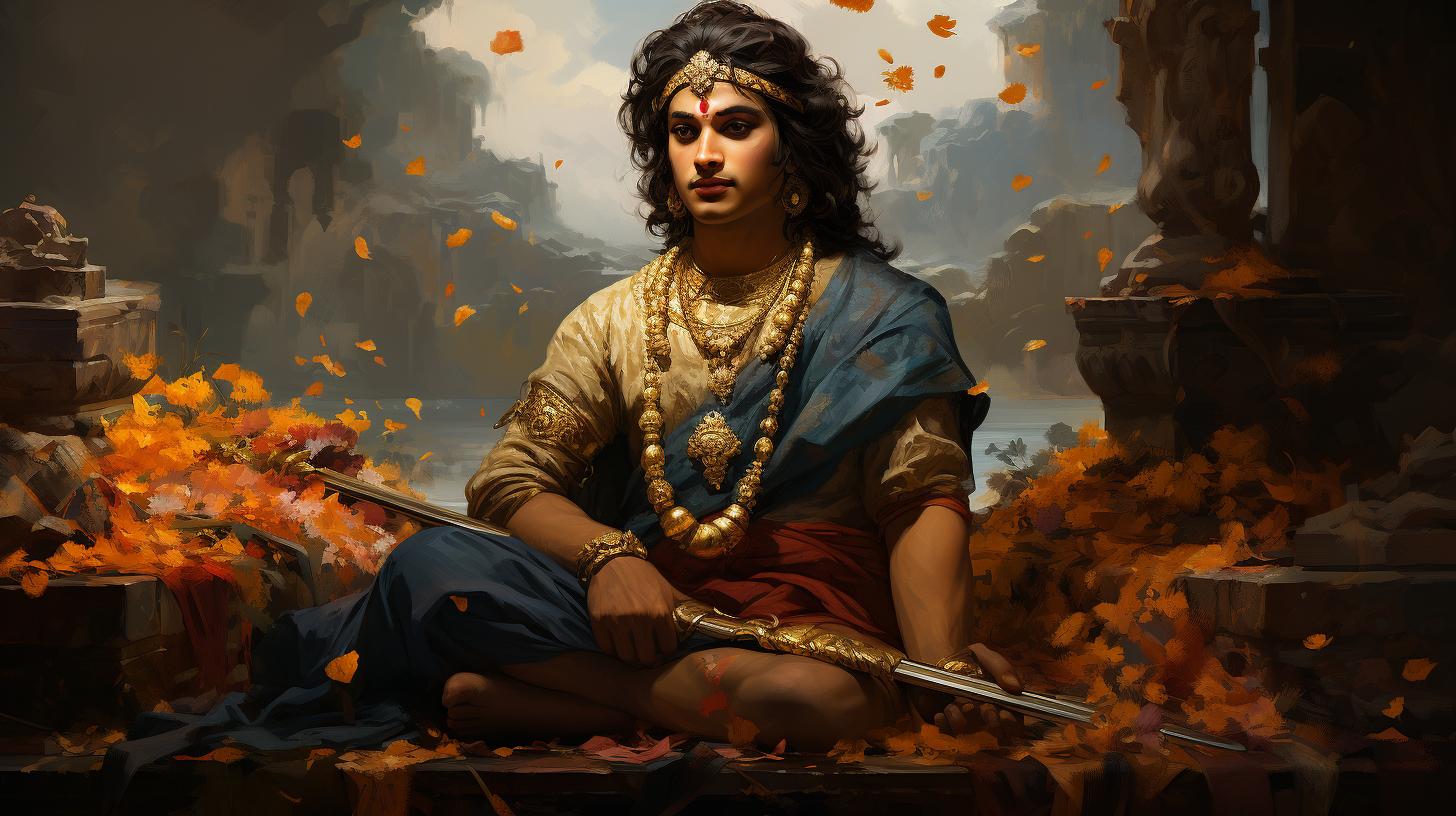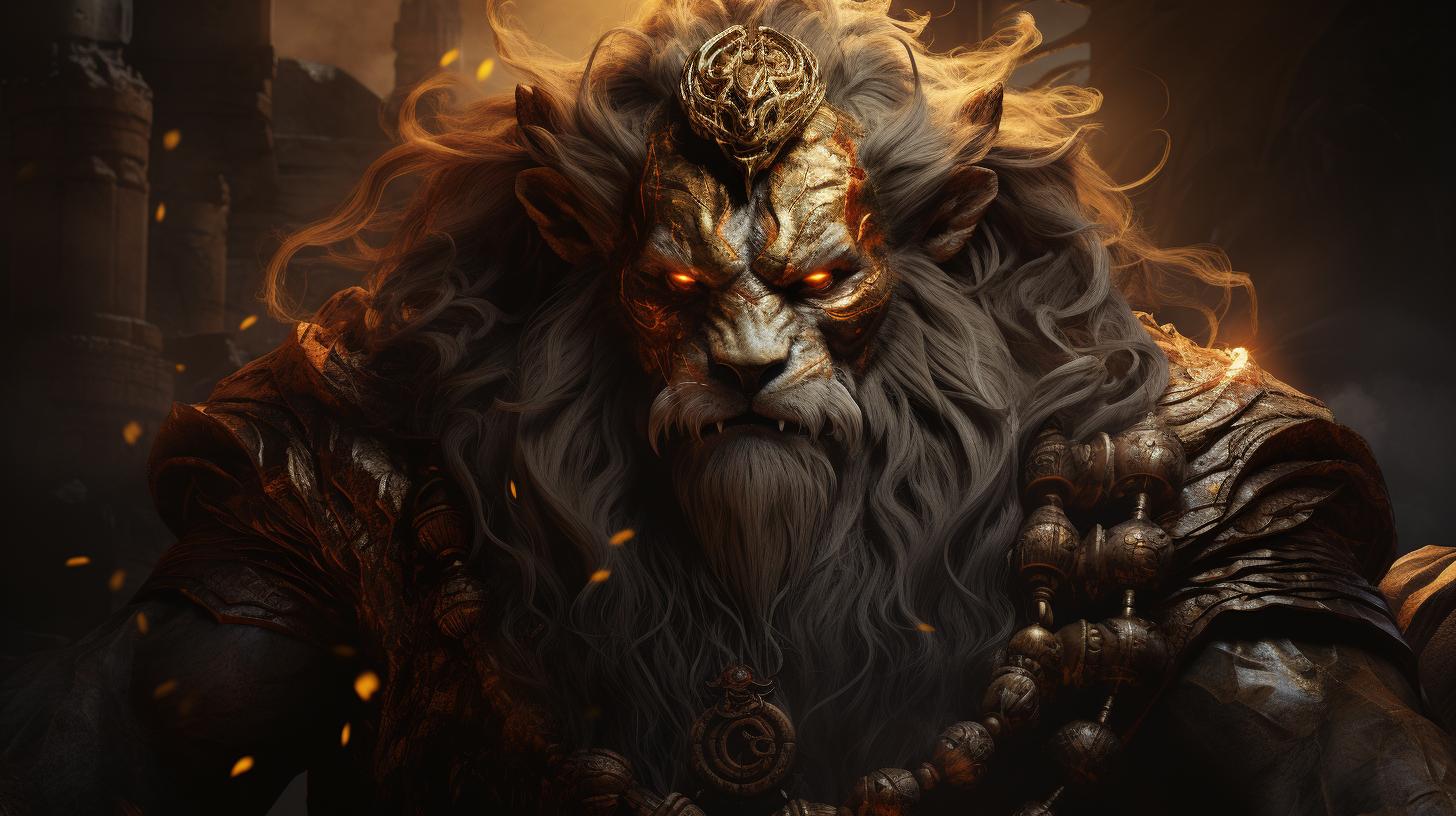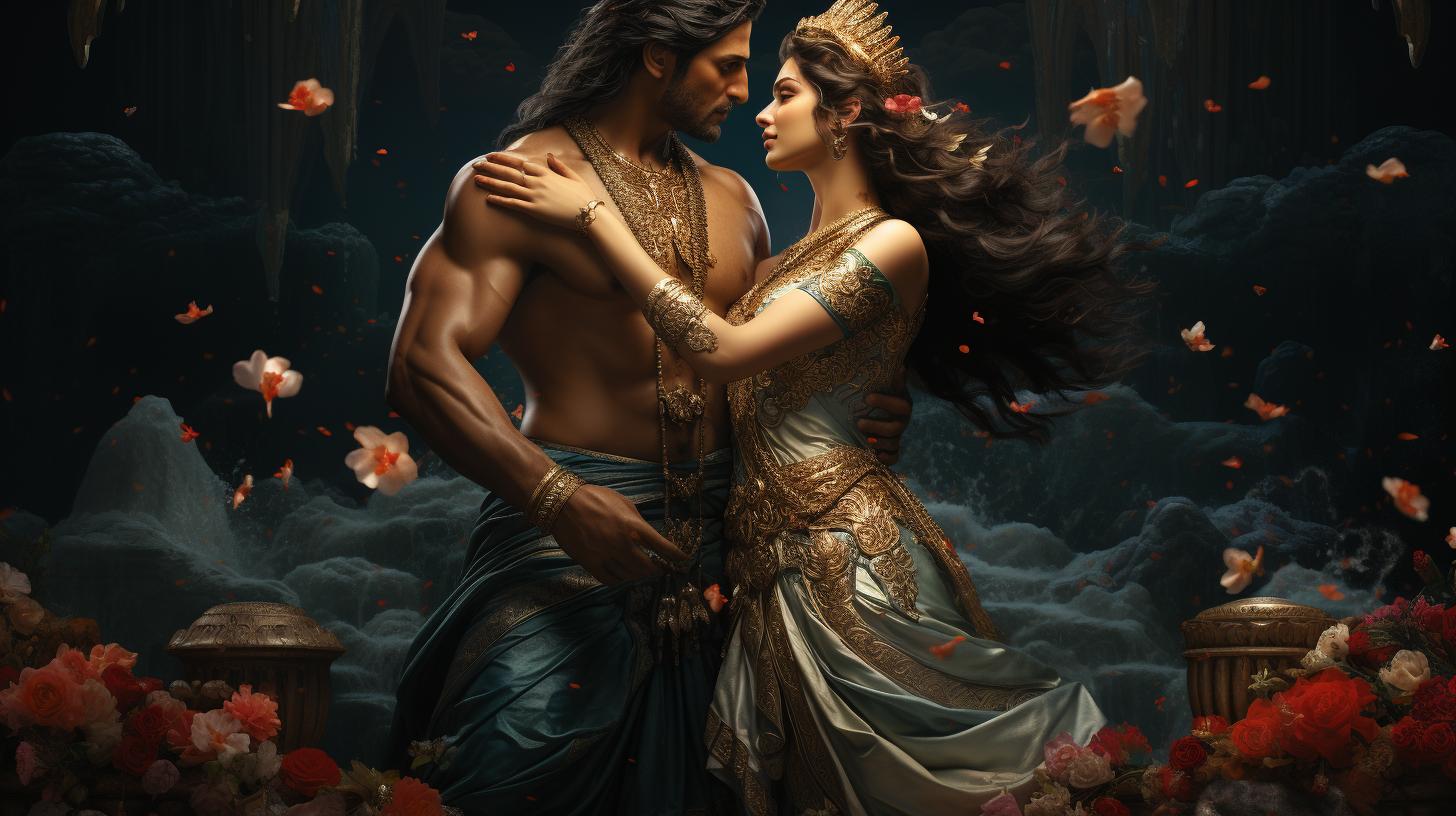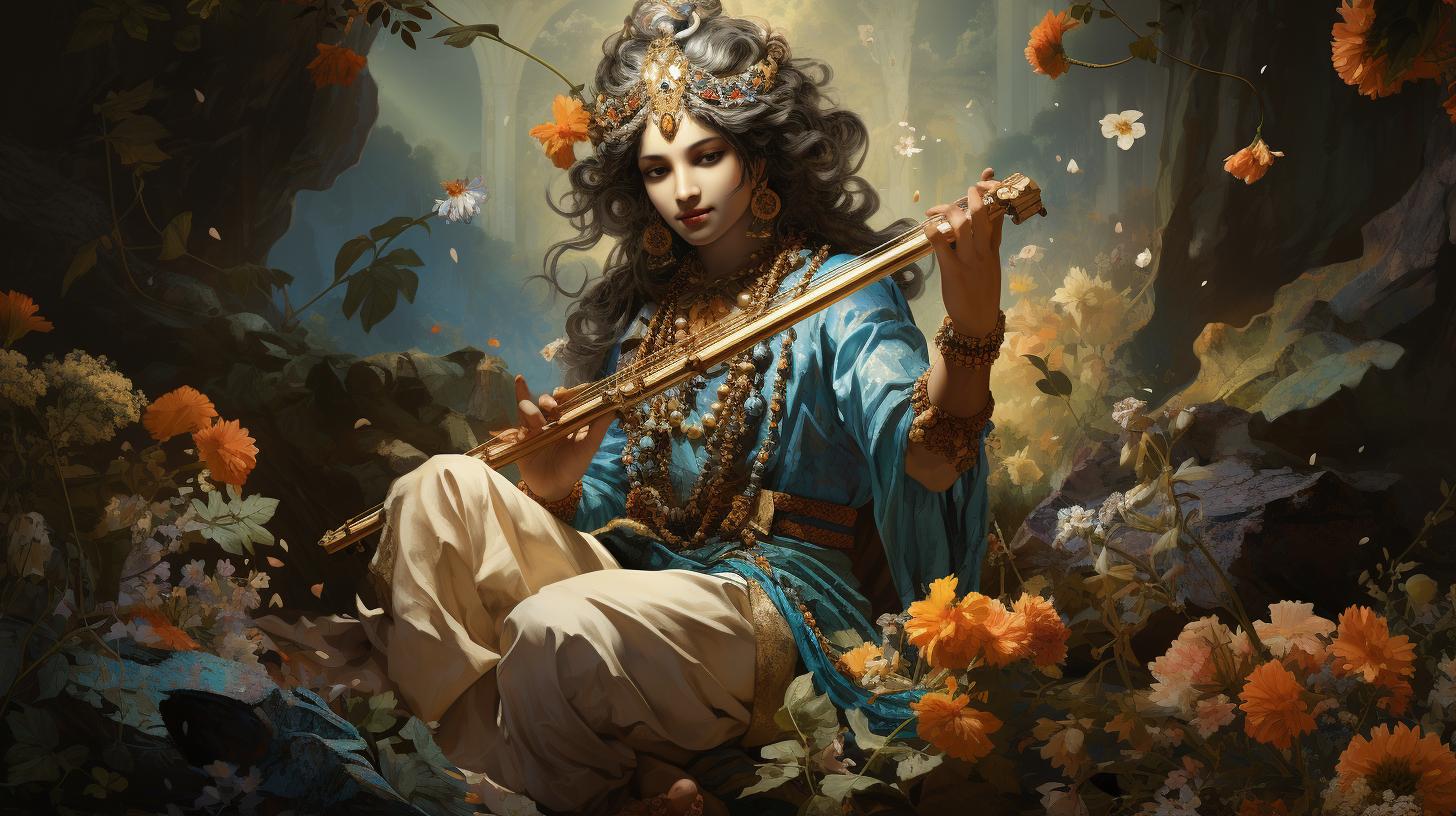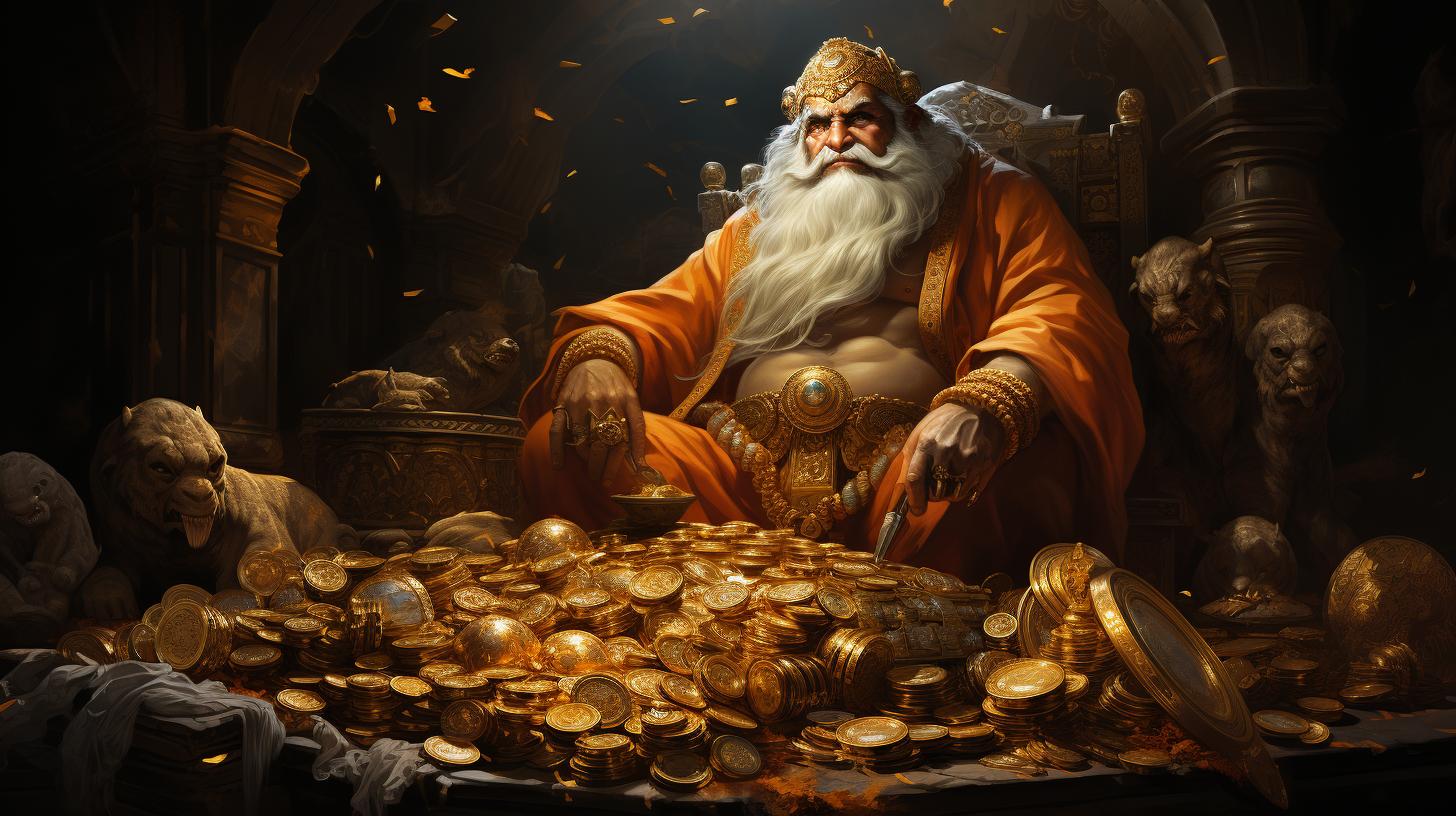Varuna Indian God: Unveiling the Mysteries and Significance
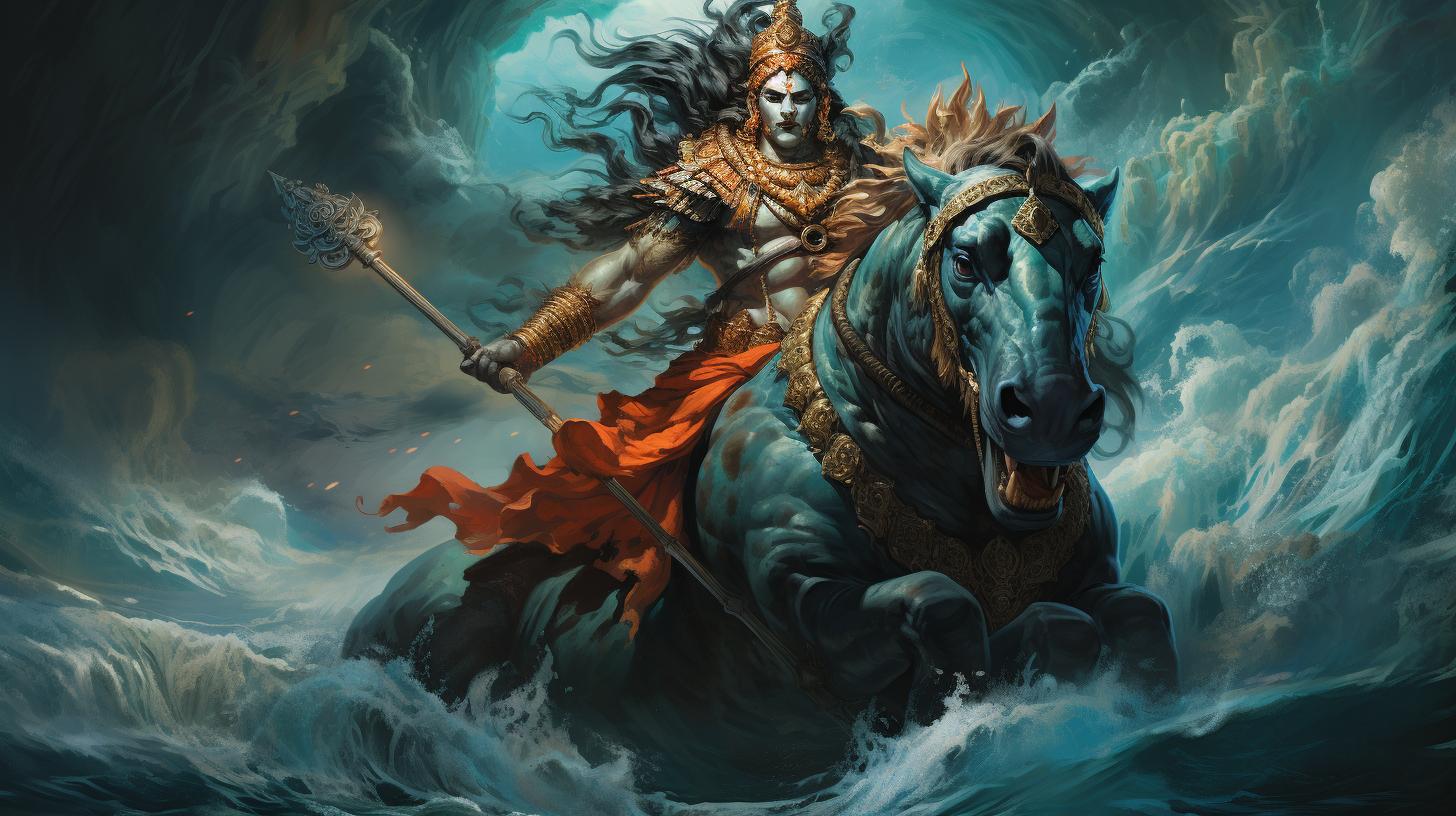
Varuna Indian god, a deity in the Vedic religion, holds a significant role in ancient Indian mythology and Hinduism. He embodies the cosmic order and features prominently in various Vedic texts, including the Rigveda.
Varuna’s relationship with humans, rituals dedicated to him, and his influence in ancient and modern Hindu society make him a noteworthy figure. This article delves into the origins, characteristics, rituals, and contemporary relevance of Varuna, exploring his evolution throughout Indian history.
Mythology and Origins
The mythology and origins of Varuna, a prominent deity in Indian culture, are deeply rooted in the Vedic religion and Hinduism. The Vedic religion, which emerged around 1500 BCE in the Indian subcontinent, played a crucial role in shaping the religious practices and beliefs of ancient India.
The Vedic Religion and Hinduism
The Vedic religion, also known as Vedism, formed the foundation of Hinduism as it evolved over time. Its origin can be traced back to the ancient scriptures called the Vedas. These sacred texts, composed in Sanskrit, are a collection of hymns, prayers, rituals, and philosophical insights that provide profound insights into the ancient Indian society, spirituality, and mythology.
Vedic Texts: The Vedas and the Rigveda
One of the most significant texts within the Vedas is the Rigveda, composed between 1700 and 1100 BCE. It consists of a collection of hymns dedicated to various deities, including Varuna.
The Rigveda portrays Varuna as a powerful god associated with cosmic order, natural phenomena, and moral law. His hymns exhibit his role as a divine judge, overseeing the actions and conduct of humans.
Indo-European Influence on Vedic Mythology
Vedic mythology reflects the influence of the Indo-European culture, which spread across various regions of Eurasia. Indo-European deities like Varuna share common elements, such as their association with celestial powers, natural forces, and ethical principles.
This suggests a shared cultural heritage and interconnections among ancient civilizations in different parts of the world.
Understanding the mythology and origins of Varuna provides valuable insights into the religious and cultural significance he held in ancient India.
Further exploration will reveal the role and characteristics of Varuna as the god of cosmic order and his relationships with other deities and human beings.
Varuna: The God of Cosmic Order
The concept of cosmic order holds great significance in Hinduism, and at the heart of this belief system lies Varuna, an ancient Vedic deity.
Varuna plays a pivotal role in maintaining balance and harmony in the universe. Let’s explore the various aspects of Varuna and his role in the cosmic order.
Role and Characteristics of Varuna
Varuna is often portrayed as a supreme deity, responsible for upholding the laws of dharma and justice.
He is depicted as an omniscient and omnipotent god, possessing the power to observe and regulate the actions of both gods and humans. Varuna is considered the guardian of the moral order and the punisher of those who deviate from righteousness.
Varuna in Vedic Literature and Hymns
The ancient Vedic texts, particularly the Rigveda, extensively mention Varuna. Numerous hymns honor his majestic presence and invoke his blessings. These hymns describe Varuna’s association with water, as he is hailed as the lord of the oceans and rivers.
His role in controlling natural phenomena like rainfall and storms is emphasized through poetic verses.
Varuna and Other Vedic Deities
In the pantheon of Vedic gods, Varuna holds a significant position alongside other major deities such as Indra, Agni, and Surya. He is often depicted as a companion of Mitra, representing the complementary aspects of the cosmic order.
Varuna’s association with Mitra symbolizes the inseparable connection between justice and friendship.
Varuna’s Relationship with Human Beings
Varuna’s influence extends beyond the realm of gods, as he is deeply intertwined with the human existence. In Vedic belief, humans are bound by the moral and ethical principles set forth by Varuna.
He is regarded as an overseer and judge, closely observing every action, and rewarding or punishing according to one’s adherence to morality. Varuna’s role in human lives highlights the importance of leading a righteous and just way of life.
Rituals and Sacrifices Associated with Varuna
Varuna, the Indian god known for his association with cosmic order, holds great significance in ancient Vedic rituals and sacrifices. These ceremonies were performed by devotees to seek Varuna’s blessings and protection, as well as to maintain the balance and harmony in the universe.
Soma Sacrifice and its Significance
One of the most prominent rituals dedicated to Varuna was the Soma sacrifice, which involved the offering of the sacred Soma plant to the deity. The Soma plant was believed to possess divine properties and was considered a bridge between mortals and the gods.
Through this sacrifice, devotees aimed to establish a closer connection with Varuna and gain his favor.
The Soma sacrifice was a complex and elaborate ritual, involving the chanting of hymns, the pouring of Soma juice into the Agni (sacred fire), and the recitation of Vedic verses.
It symbolized the divine communion between humans and Varuna, reinforcing the cosmic order and emphasizing the importance of righteousness and moral conduct in society.
Devotees believed that the Soma sacrifice offered purification and atonement for any transgressions, as well as protection from the negative consequences of their actions.
It was seen as a means to attain spiritual enlightenment and to align oneself with the divine will of Varuna.
The Rituals Dedicated to Varuna
Apart from the Soma sacrifice, there were various other rituals dedicated to Varuna. These rituals involved the chanting of hymns, making offerings of food, flowers, and prayers, as well as the performance of specific gestures and gestures known as mudras.
Devotees would gather in temples or sacred spaces to participate in these ceremonies, seeking Varuna’s blessings for prosperity, protection, and overall well-being.
During these rituals, priests would invoke Varuna’s presence through the recitation of mantras and offer prayers on behalf of the devotees.
The ceremonies were accompanied by the rhythmic sounds of bells, drums, and conch shells, creating an atmosphere of spiritual fervor and devotion. The faithful believed that by faithfully performing these rituals, they would please Varuna and ensure his benevolence.
Varuna’s Role in Determining Human Fate
In Vedic mythology, Varuna was believed to have the power to determine the fate of human beings. His role as the cosmic judge and enforcer of moral order made him responsible for overseeing human actions and dispensing justice accordingly.
Varuna’s association with karma, the law of cause and effect, established a link between one’s actions and their consequences. Devotees believed that Varuna’s omniscient gaze could see through the deeds and intentions of individuals, rewarding the righteous and punishing those who deviated from his prescribed moral code.
Thus, the rituals and sacrifices dedicated to Varuna served as acts of seeking forgiveness, redemption, and protection from the repercussions of one’s actions. By appeasing Varuna through these rituals, devotees aimed to align their lives with the cosmic order and ensure a favorable outcome in their personal and spiritual journeys.
Evolution and Influence of Varuna in Ancient India
The evolution and influence of Varuna, the Indian god, have left a profound impact on ancient Indian civilization. Throughout the ancient and early Vedic period, Varuna played a significant role in the lives of the people.
Varuna in the Ancient and Early Vedic Period
In the ancient Indian society, Varuna was revered as a powerful deity associated with cosmic order and moral principles. He was considered as the supreme lord of the universe who maintained balance and harmony in the world.
The early Vedic texts depict Varuna as a wise and just god, overseeing the adherence to Dharma, the cosmic law.
Key points:
- Varuna’s role as a guardian of moral order
- The belief in Varuna’s omniscient nature
- The relationship between Varuna and human ethics
Varuna’s Influence in the Major Hindu Epics
Varuna’s influence extended beyond the Vedic period and continued to exert a significant presence in the major Hindu epics, such as the Mahabharata and the Ramayana.
In these epic tales, Varuna is portrayed as a divine witness to human deeds, especially in matters of truth and righteousness.
Key points:
- Varuna’s role in upholding truth and justice
- Instances of Varuna’s intervention in epic narratives
- Varuna’s association with the concept of cosmic justice
Varuna in the Upanishads and Later Hindu Texts
The Upanishads, the philosophical treatises of Hinduism, present Varuna in a more abstract and metaphysical light.
He is often linked to the concept of the ultimate reality or Brahman. Varuna’s symbolism and attributes evolve, emphasizing his transcendental nature and his connection to the eternal cosmic order.
Key points:
- Varuna’s transformation into a symbol of the divine transcendence
- Varuna’s association with the eternity of cosmic order
- Varuna’s representation in later Hindu texts and philosophies
This evolution and influence of Varuna in ancient India showcases the dynamic nature of Indian mythology and the enduring significance of a deity who represented the cosmic order and moral values throughout different periods of Indian history.
Varuna in Contemporary Hinduism
Varuna in Modern Hindu Worship and Devotion
In modern Hinduism, Varuna continues to hold a significant place in religious practices and devotion. Devotees pay homage to Varuna through various rituals and ceremonies conducted in temples dedicated to him.
Worshippers seek his blessings for protection, forgiveness, and the maintenance of cosmic order in their lives. Varuna’s role as a guardian deity is recognized and revered, particularly by those seeking solace and guidance during tumultuous times.
Varuna’s Symbolism and Representation in Art
Visual depictions of Varuna in Hindu art often portray him as a benevolent deity, seated on a lotus and holding a noose or a lasso symbolizing his ability to bind and control the forces of the universe.
His imagery conveys his authority over water, celestial bodies, and moral laws. Paintings, sculptures, and murals showcasing Varuna’s divine presence not only adorn temples but also serve as reminders of his power and significance in Hindu religious iconography.
Varuna’s Legacy and Relevance in Hindu Society
Varuna’s legacy in Hindu society remains profound, even in contemporary times. His association with cosmic order, justice, and cosmic law continues to inspire moral behavior and ethical conduct. Varuna’s teachings and principles emphasize the importance of truth, righteousness, and accountability.
As society grapples with challenges, the values embodied by Varuna offer guidance and inspiration in navigating the complexities of life.
Furthermore, Varuna’s relevance extends beyond the realm of religious belief. Scholars, historians, and researchers explore his significance in ancient texts, decipher his mythological narratives, and evaluate his enduring impact on Indian culture.
The study of Varuna provides insights into the evolution of Hinduism, its rituals, and the interplay between mythology and societal norms.
In conclusion, Varuna’s presence in contemporary Hinduism highlights the timeless nature of his teachings and the enduring influence of his divine persona.
As devotees worship him, artists depict him, and scholars study him, Varuna’s essence continues to shape religious beliefs, artistic expression, and intellectual pursuits.
.

